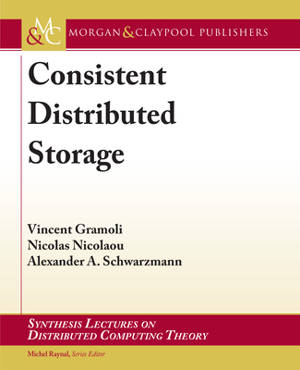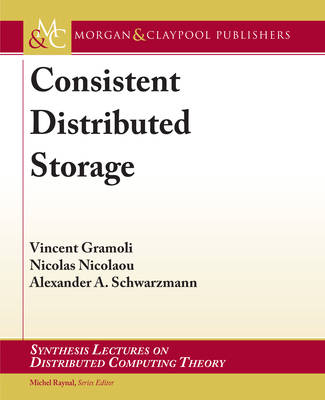
- Afhalen na 1 uur in een winkel met voorraad
- Gratis thuislevering in België vanaf € 30
- Ruim aanbod met 7 miljoen producten
- Afhalen na 1 uur in een winkel met voorraad
- Gratis thuislevering in België vanaf € 30
- Ruim aanbod met 7 miljoen producten
Omschrijving
This is a presentation of several approaches for employing shared memory abstraction in distributed systems, a powerful tool for simplifying the design and implementation of software systems for networked platforms.
These approaches enable system designers to work with abstract readable and writable objects without the need to deal with the complexity and dynamism of the underlying platform. The key property of shared memory implementations is the consistency guarantee that it provides under concurrent access to the shared objects. The most intuitive memory consistency model is atomicity because of its equivalence with a memory system where accesses occur serially, one at a time. Emulations of shared atomic memory in distributed systems is an active area of research and development. The problem proves to be challenging, and especially so in distributed message passing settings with unreliable components, as is often the case in networked systems. Several examples are provided for implementing shared memory services with the help of replication on top of message-passing distributed platforms subject to a variety of perturbations in the computing medium.
Specificaties
Betrokkenen
- Auteur(s):
- Uitgeverij:
Inhoud
- Aantal bladzijden:
- 192
- Taal:
- Engels
- Reeks:
Eigenschappen
- Productcode (EAN):
- 9781636390628
- Verschijningsdatum:
- 30/06/2021
- Uitvoering:
- Paperback
- Formaat:
- Trade paperback (VS)
- Afmetingen:
- 190 mm x 235 mm
- Gewicht:
- 344 g

Alleen bij Standaard Boekhandel
Beoordelingen
We publiceren alleen reviews die voldoen aan de voorwaarden voor reviews. Bekijk onze voorwaarden voor reviews.







